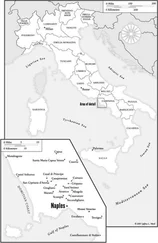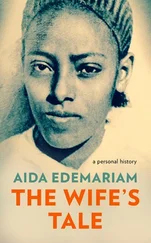Outside the cathedral, school in term time was a Dickensian nightmare: ghastly food, sour milk in small bottles, a potted sick-like substance called ‘sandwich spread’ on curling bread, regular beatings, cold showers and endless inspections of our fingernails. The headmaster, Humphrey Salway, was a former Guards officer with a fearsome capacity to inflict psychological and physical pain, the latter at the hand of a wooden ‘butter pat’. This was a flat, spade-like object with a leather tassel attached. It had the facility to produce blue-black weals on your buttocks, laced with red slashes. We would stand in line in our shivering pyjamas outside the headmaster’s study after being caught talking after lights-out in dormitory. The decision as to whether or not we would be beaten was entirely arbitrary. If we were, we would not be able to sit painlessly for a week or more. In a very rare act of theft, at thirteen years of age, I stole the butter pat on my last day at the school. I have often thought of old Salway, on the threshold of inflicting a sound beating, marauding around his study searching for the weapon and failing to find it. These days his motives would be questioned, but then he was a celebrated and feared figure in the cathedral close.
On 8 June 1958 I was summoned home from school to meet the Queen and Prince Philip. This was a huge event. The whole of the downstairs of the house had been decorated. The lavatory – euphemistically called ‘the garden room’ – where my father sat reading the traditionalist magazine Time & Tide for unreasonable quantities of time had been gutted and refitted against the possibility that one of Their Majesties would need a pee. My mother had made a special trip to Harrods in London to secure two Crown Derby cups and saucers from which the royal lips could sip tea.
The Queen and Prince Philip had opened Crawley New Town and Gatwick Airport in the morning, and were now descending upon Ardingly as part of the school’s centenary. Suddenly my father and mother were not in their usual posts at the top of the social tree. The Queen’s secretary, Sir Edward Ford, whom my father had taught at Eton, arrived early to see that all was in order. My father spoke of Harold Macmillan having played a part in securing the moment.
At 3 p.m. prompt, the biggest Rolls-Royce I’d ever seen steamed through the archway and onto the quadrangle in front of our house. My brothers and I stood at the top of the steps outside the front door. Our hands were shaken. The Queen was rather small, pleated, hatted and stiff. The Duke of Edinburgh burbled, but I couldn’t understand what he said. Then they were inside, and I began to think about the garden room. Even if not sitting there, the royal bottoms must by now be sitting on some of the cushions that I knew and loved so well.
Soon the Queen was gone, and I was on the train back to Winchester. Mr Salway treated me briefly like a conquering hero. At breakfast the next day I was allowed to sit next to his wife Lorna, a warm and affectionate woman who let me eat her fresh toast and marmalade instead of the usual soggy white bread and spread. But very soon normal sadistic services were resumed by her husband. This was, after all, term time.
Yet once the holidays dawned and the ‘ordinary” boys went home it would be all smiles, and we sixteen who constituted the choir were never tyrannised or beaten. We were cast loose upon the town to spin out our tiny five-shilling budgets. We had absolute freedom in those days, and gained absolute sympathy too. We were spoilt rotten, people in both school and town taking pity upon us for our enforced separation from our families as we lingered on to service Christmas, Easter, Ascension and the rest. These days sowed a love of music and of the cathedral, and if not of religion, certainly of peace and contemplation in a great building. But they were also central to the destruction of our family lives. Holidays amounted to only four or five weeks a year for the five years of my time at Winchester. My father was so rarely encountered, I called him ‘sir’ by mistake.
From this familial wreckage emerged a confident, independent child of thirteen – primed for adolescence, or so I was indirectly told. For Humphrey Salway’s parting shot was an obscure account of the ‘facts of life’. These centred on the ‘golden seed’, which at some point I was going to wake up and find in my bed. Beyond rust spots inflicted by the mattress springs beneath, though I searched, I grew up minus ‘golden seed’. Indeed, I left the choir school with my voice still unbroken.
The letter to my father from Number Ten Downing Street arrived at Ardingly just before I returned there from my last day at Pilgrim’s: ‘The Queen has been graciously pleased to appoint you Bishop Suffragan of Whitby.’ The signature at the bottom read ‘Harold Macmillan, Prime Minister’. The new Archbishop of York, in whose domain my father’s territory lay, was to be his friend Donald Coggan. All my father’s ducks were in a row, and the longed-for preferment had come on the very eve of his retirement from Ardingly. The Church, political, militant, ecclesiastical and old-boy network, had done its stuff, and we were all thrilled. We now had a new status in life, and after Ardingly a grand new home in darkest North Yorkshire.
The Old Rectory in South Kilvington, with its own little Saxon church in the garden, was as near paradise as the Brontës would have dared imagine. My new bedroom looked south and west over the garden. I was not to pass much time there, but I spent enough in that first summer to talk hungrily with the remarkable octogenarian who tended the garden. Joe Clarke had only ever left Kilvington once in his life, and that was to go to Egypt in the First World War to dig pit latrines for victory. Joe was conscripted into the First City of London Sanitary Corps. Wherever Allied man had to do his duty, Joe was there to facilitate the needs of the lower bowel. He served for five years. ‘I tell you, master Jon, I had to give up on digging the waste to bury the dead, there was that many.’ Joe, who had dug his way through Europe after Egypt, burying the war dead, now dug his way through the Old Rectory’s rhododendrons. The carnage of the Great War was fifty years before, but Joe’s memories were as vivid as if it were yesterday.
I wanted nothing more than to garden and learn with Joe, but I had a music exhibition to St Edward’s, a minor fee-paying school in Oxford. The headmaster, Frank Fisher, was the son of yet another prelate, Geoffrey, Archbishop of Canterbury. He took pity on my father’s high-born impecuniousness and secured me an ill-deserved cut in fees in the form of a choral exhibition. So on the one hand here was Joe giving me the side of war from the ranks, of which my family knew nothing, while through my father I was able to observe the insidious methods of the upper classes in securing hegemony in matters military, educational, ecclesiastical, even episcopal.
Three Bishops were ‘done’ on the day my father was consecrated in York Minster, and a grand affair it was. Eight feet tall in his mitre, my father was every inch a Bishop. The Whitby nuns had toiled through the nights to spin and embroider his voluminous cope. The silversmiths had beaten his pectoral cross and crosier out of some dead Bishop’s leftover silverware. Fully adorned, my father was some spectacle; and the minster bounced with sound and colour.
It was as an innocent abroad that I arrived at St Edward’s, a seriously Victorian environment. The first three weeks were spent mugging up for an initiation test, essentially a compendium of names and concepts that were peculiar to the school: ‘chaggers’ for changing rooms, ‘beaks’ for masters, ‘boguls’ for bicycles, and some ludicrous piece of ironwork on the chapel roof was ‘the boot scraper’. Sixteen years after the Second World War, here was an institution still ordered around the ball and the gun. Games were everything, and when we weren’t playing rugby, we were square-bashing in full uniform on the parade ground.
Читать дальше












